What Are Adjectives?
Adjectives are words that describe or modify nouns and pronouns. They provide additional information about the qualities or characteristics of a person, place, thing, or idea. In simple terms, adjectives help to answer the question “What kind?” or “Which one?”
For example:
- The blue sky looks beautiful.
- She wore a gorgeous dress.
In both examples, the words “blue” and “gorgeous” are adjectives because they describe the noun “sky” and “dress,” respectively.
Common Types of Adjectives
There are different types of adjectives, including:
| Type | Example |
|---|---|
| Descriptive Adjectives | She has a happy smile. |
| Quantitative Adjectives | I have three apples. |
| Demonstrative Adjectives | This is that book. |
| Possessive Adjectives | That is his car. |
| Interrogative Adjectives | Which book is yours? |
What Are Adverbs?
Adverbs are words that modify verbs, adjectives, or other adverbs. They give more information about how, when, where, or to what extent something happens. Adverbs often answer questions like “How?” “When?” “Where?” or “To what extent?”
For example:
- He runs quickly.
- She sings beautifully.
In these examples, “quickly” and “beautifully” are adverbs that modify the verbs “runs” and “sings,” respectively.
Types of Adverbs
Adverbs can be categorized into different types:
| Type | Example |
|---|---|
| Manner (How?) | She danced gracefully. |
| Time (When?) | He will arrive tomorrow. |
| Place (Where?) | They are playing outside. |
| Degree (To what extent?) | I am very tired. |
Key Differences Between Adjectives and Adverbs
Understanding the difference between adjectives and adverbs is essential because they serve different functions in a sentence.
| Feature | Adjectives | Adverbs |
|---|---|---|
| Modifies | Nouns and pronouns | Verbs, adjectives, and other adverbs |
| Answers Questions | What kind? Which one? How many? | How? When? Where? To what extent? |
| Example in Sentence | She has a beautiful voice. | She sings beautifully. |
| Position in Sentence | Usually before the noun | Usually after the verb or adjective |
| Example with Adjective/Adverb | The slow car stopped. | He walks slowly. |
How to Spot the Difference: Simple Tips
- Look for the word being modified:
If the word is modifying a noun, it’s an adjective. If it’s modifying a verb, adjective, or another adverb, it’s an adverb. - Check the word ending:
Many adverbs end in “-ly,” though there are exceptions. For example, “quick” is an adjective, while “quickly” is an adverb. - Ask the right questions:
If the sentence answers “What kind?” or “Which one?”—you’re likely dealing with an adjective. If it answers “How?” or “When?”—you’re likely dealing with an adverb.
When Adjectives and Adverbs Get Tricky
Some words can function as both adjectives and adverbs, depending on how they are used. For example:
- She spoke in a loud voice. (Adjective modifying “voice”)
- She spoke loud during the meeting. (Adverb modifying “spoke”)
In these sentences, the same word “loud” serves different purposes depending on whether it modifies the noun “voice” or the verb “spoke.”
Common Mistakes to Avoid
- Confusing “good” and “well”:
“Good” is an adjective, while “well” is an adverb.- He is a good singer. (Adjective)
- He sings well. (Adverb)
- Double Negatives:
Avoid using double negatives like “I don’t need no help.” Instead, use “I don’t need any help.” - Overusing Adverbs:
While adverbs are helpful, avoid overusing them as they can clutter your writing. For example, “He very quickly ran to the store” could simply be “He quickly ran to the store.”






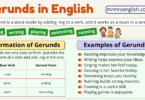
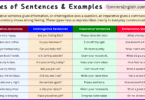
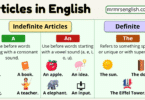
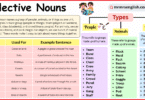
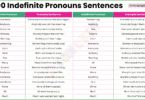
Leave a Comment